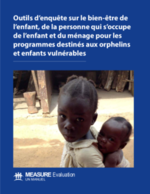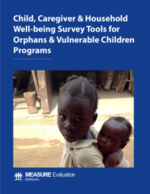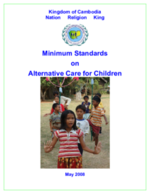MEASURE Evaluation Caregiver Questionnaire
The caregiver questionnaire is intended for use as one of the OVC survey tools developed by MEASURE Evaluation, with support from the OVC technical working group of the U.S. President’s Emergency Plan for AIDS Relief (PEPFAR).






